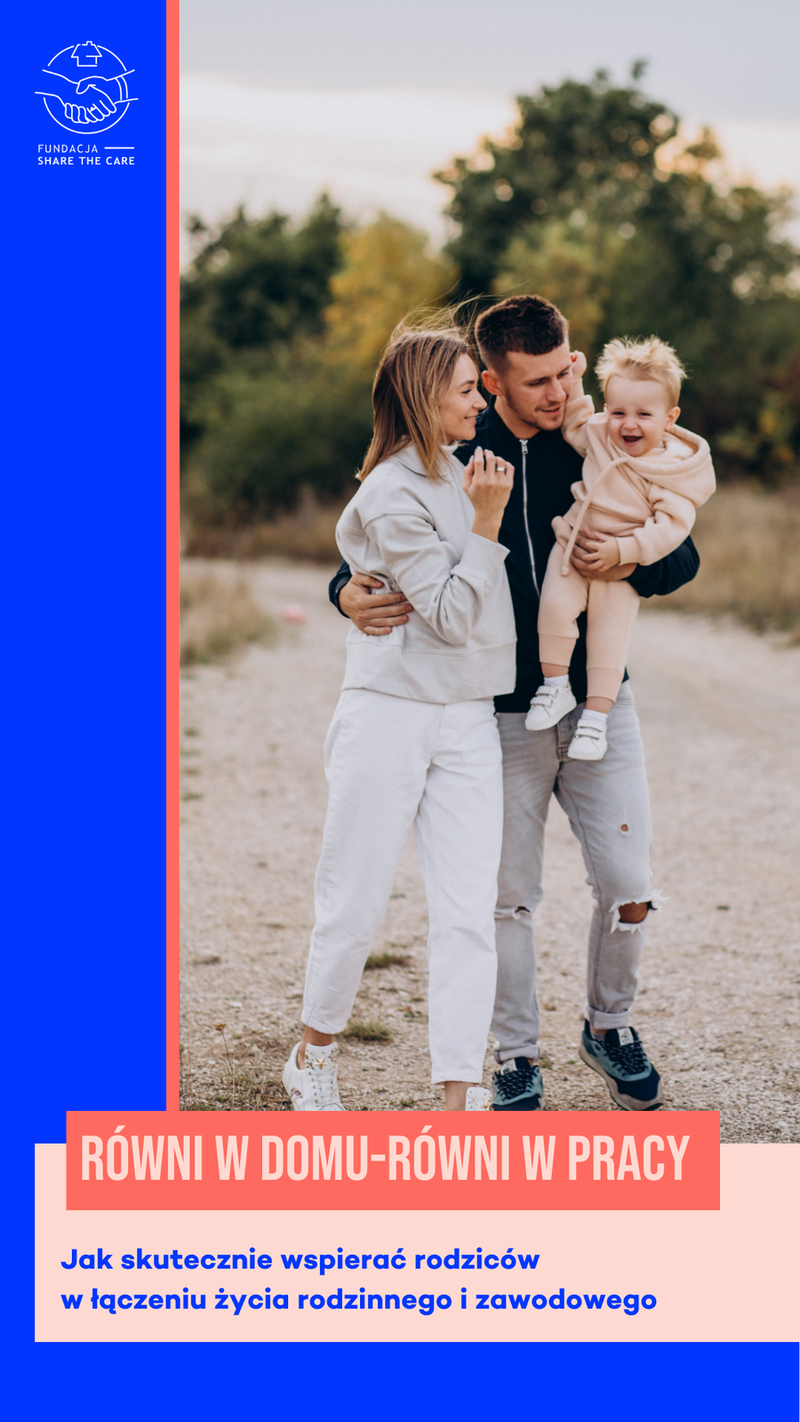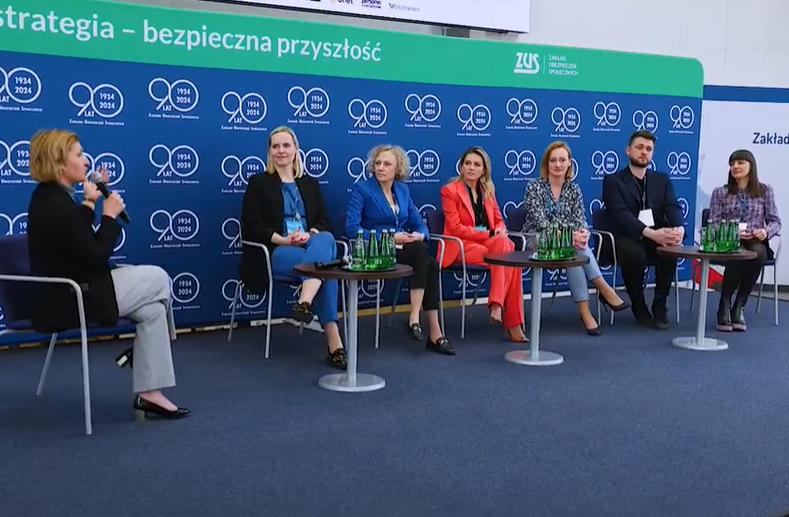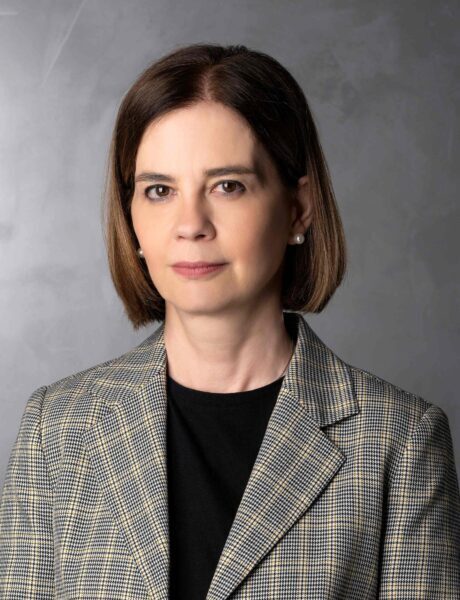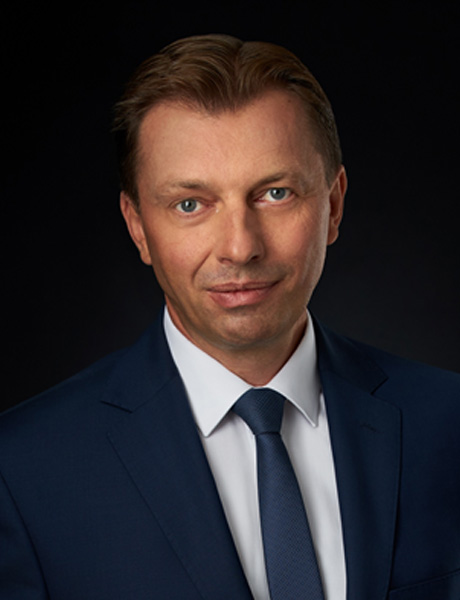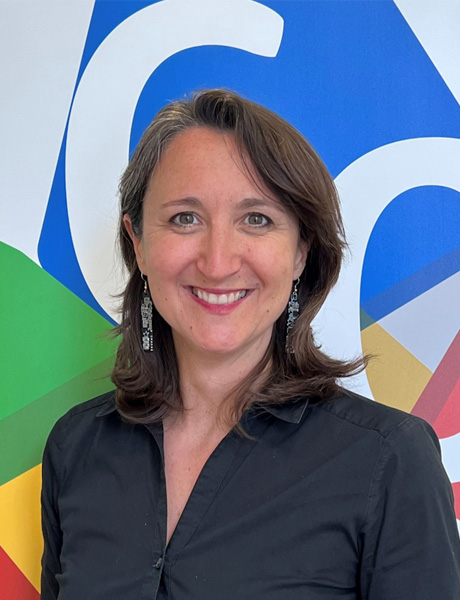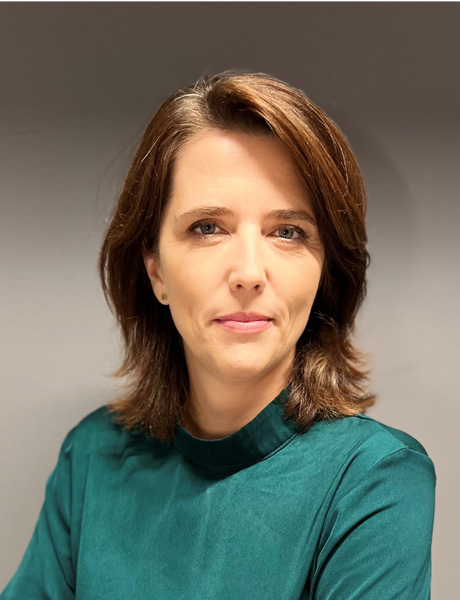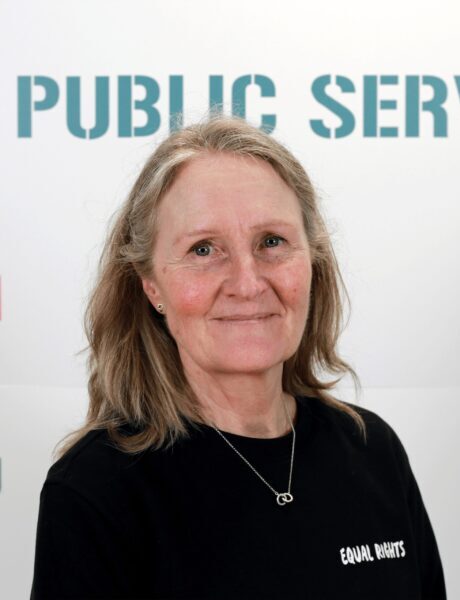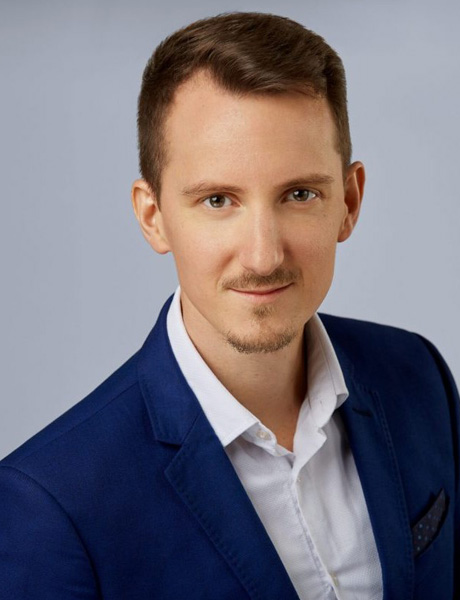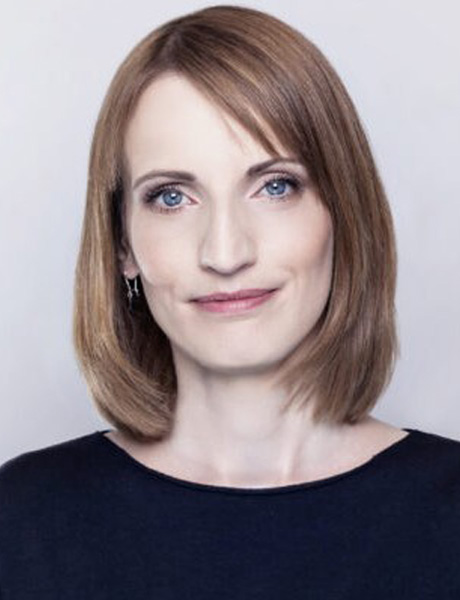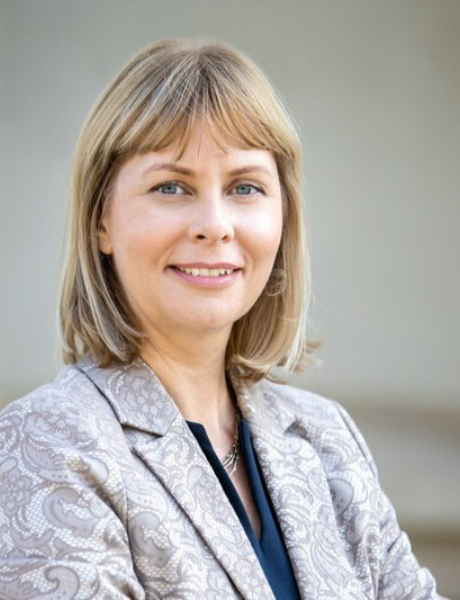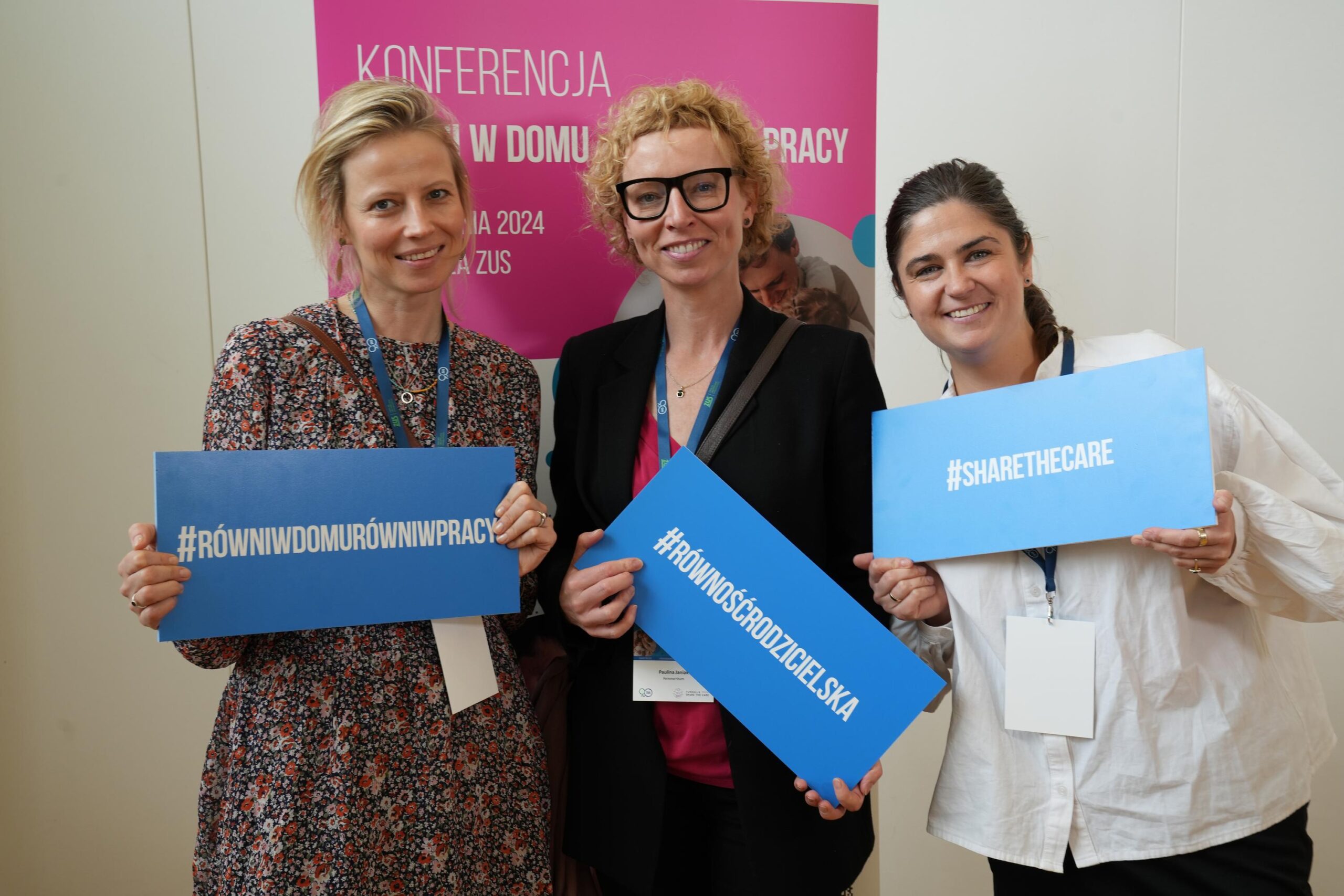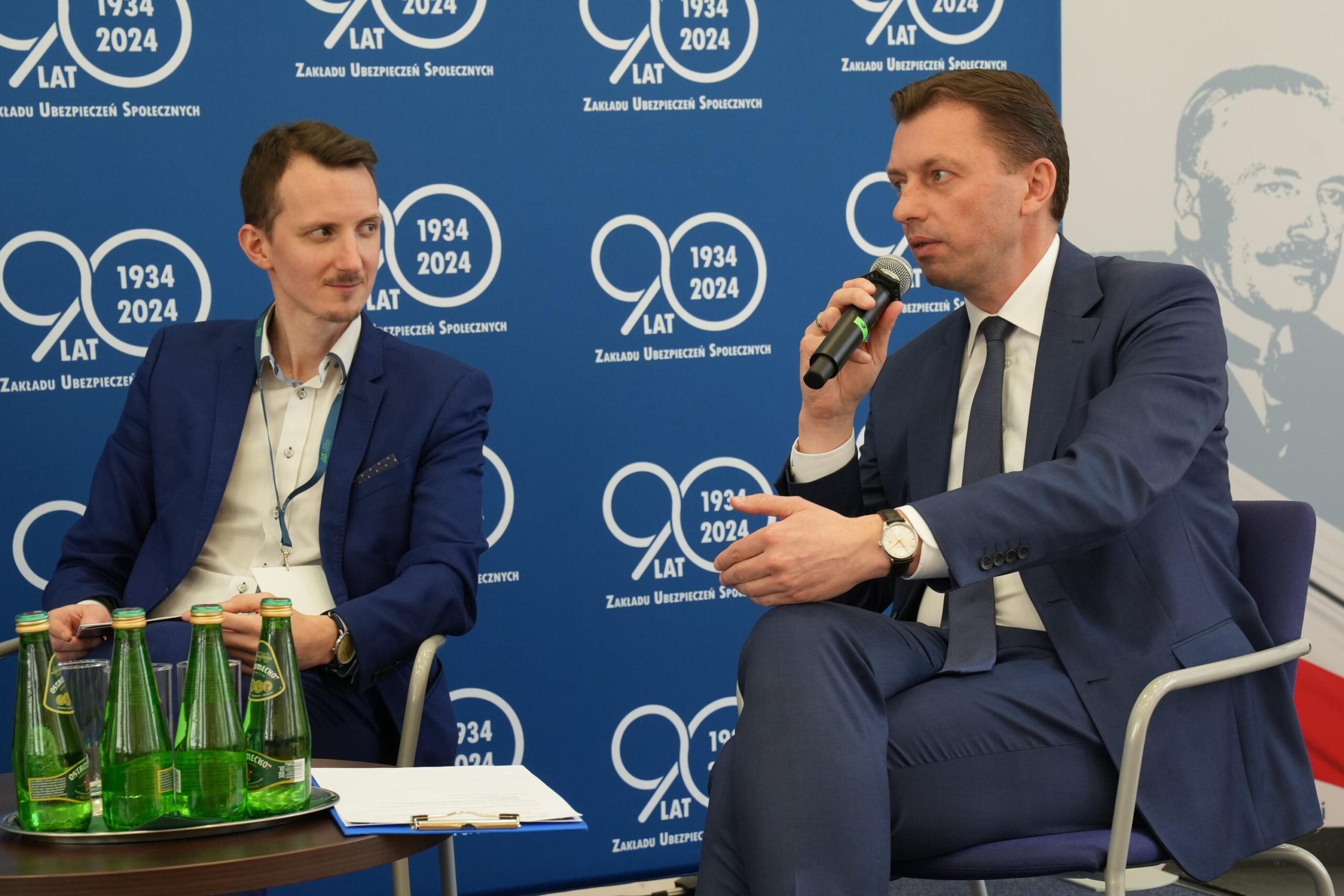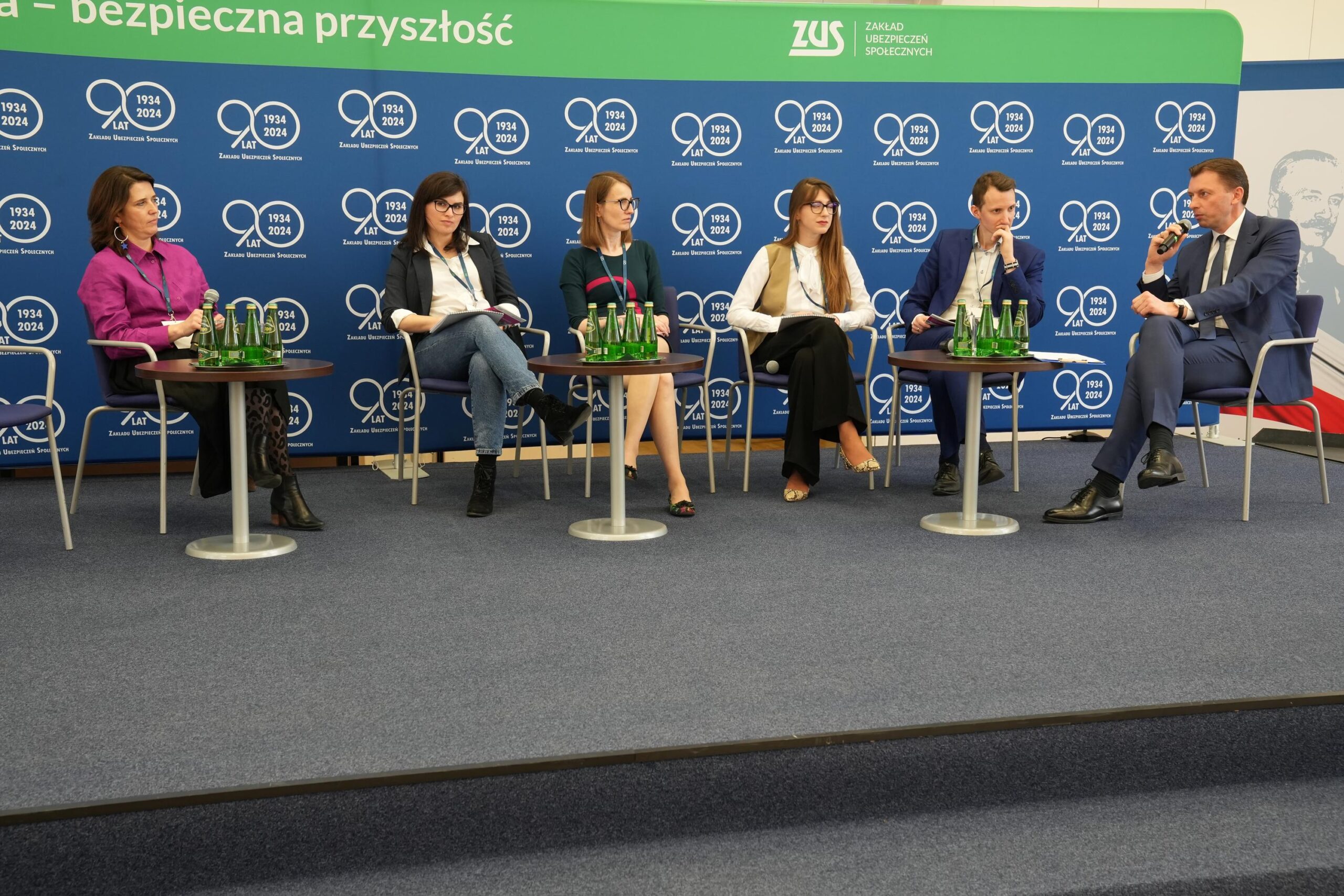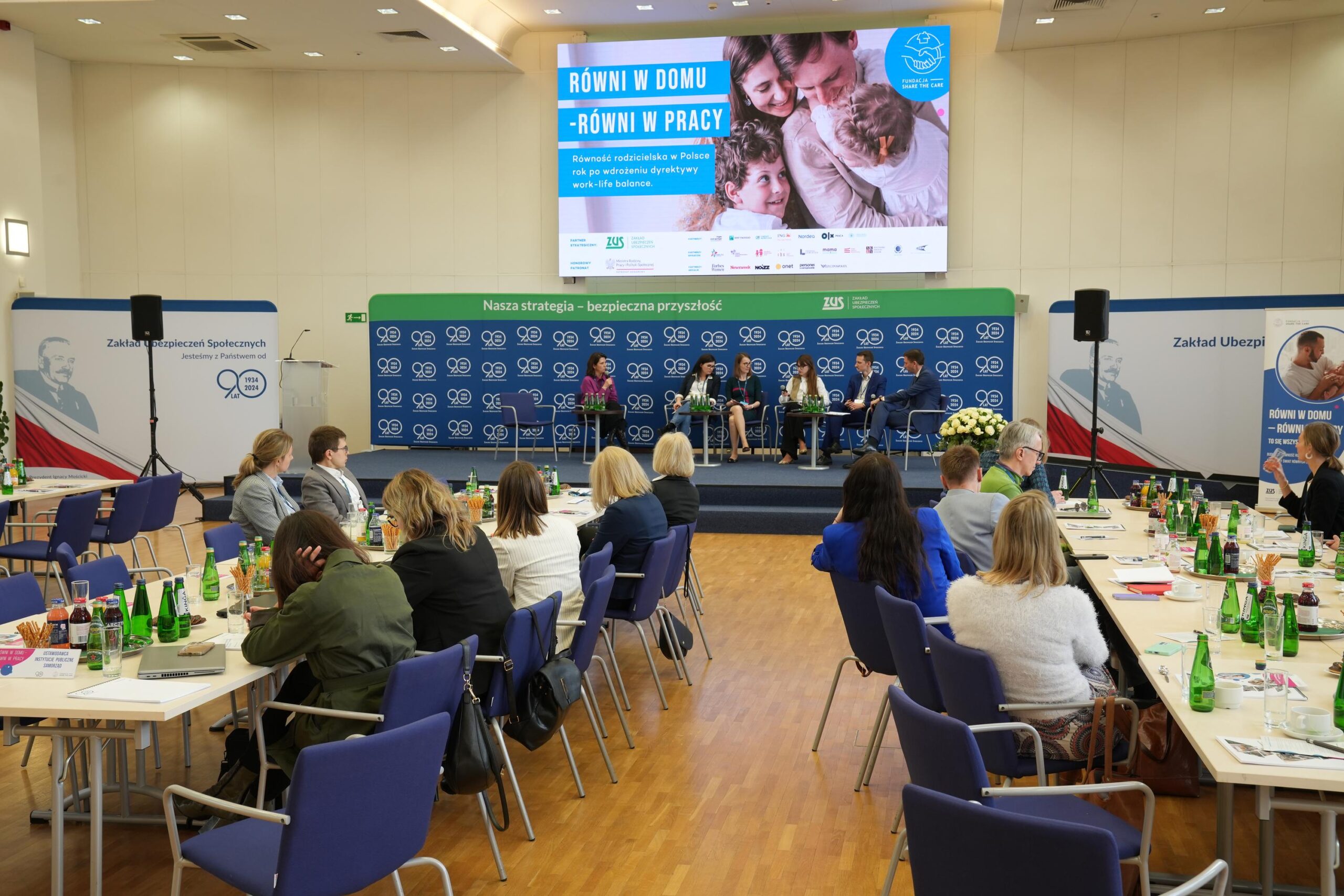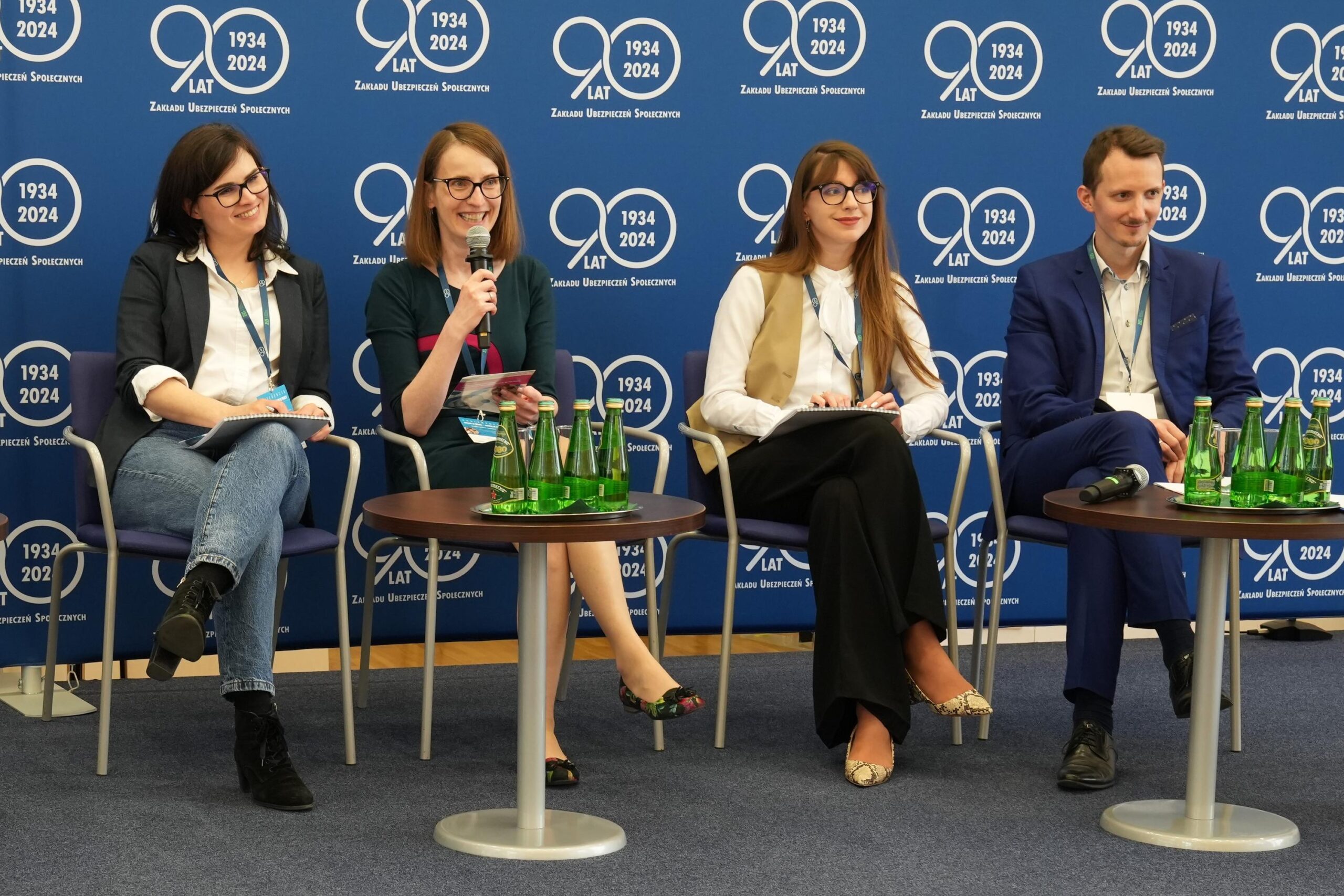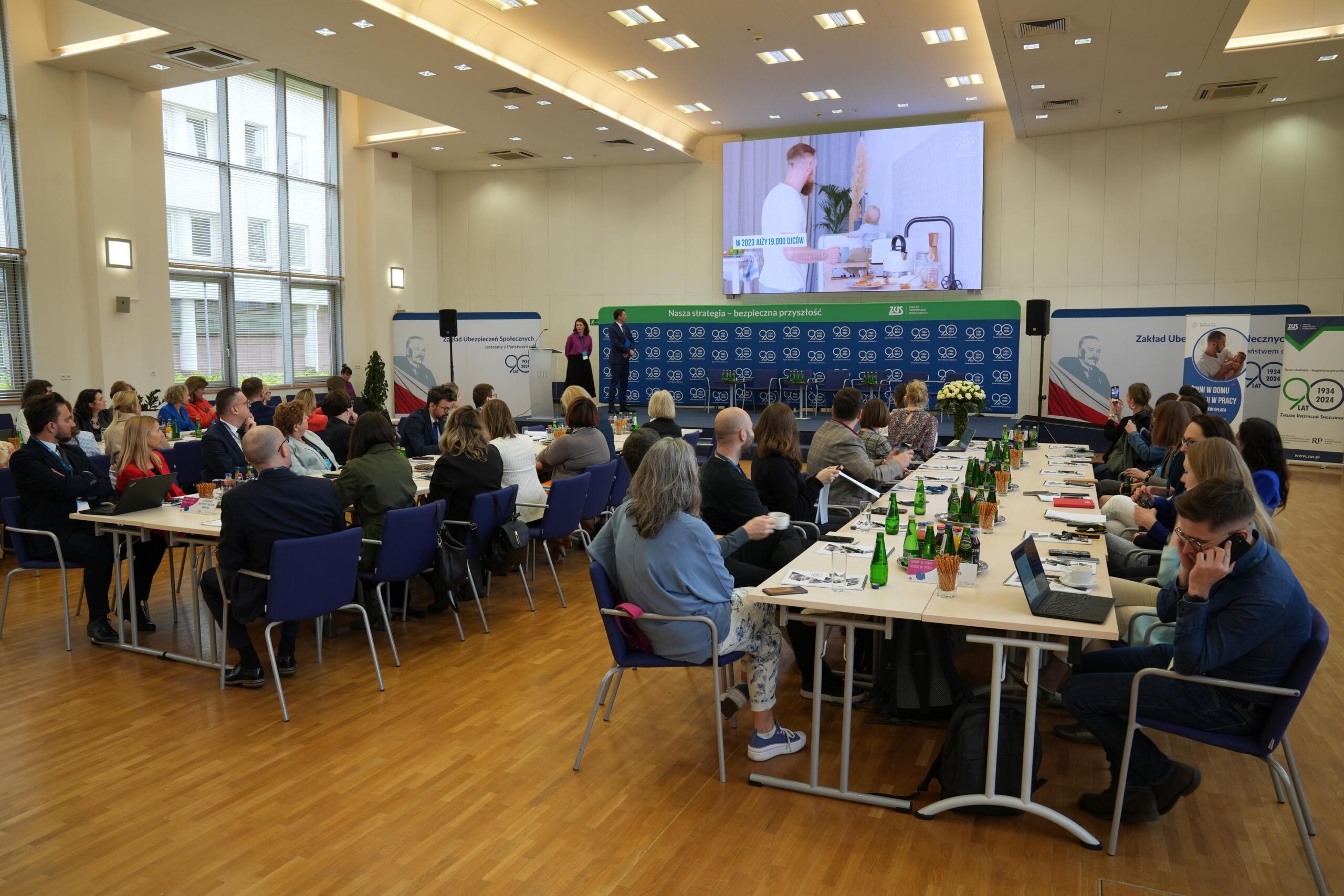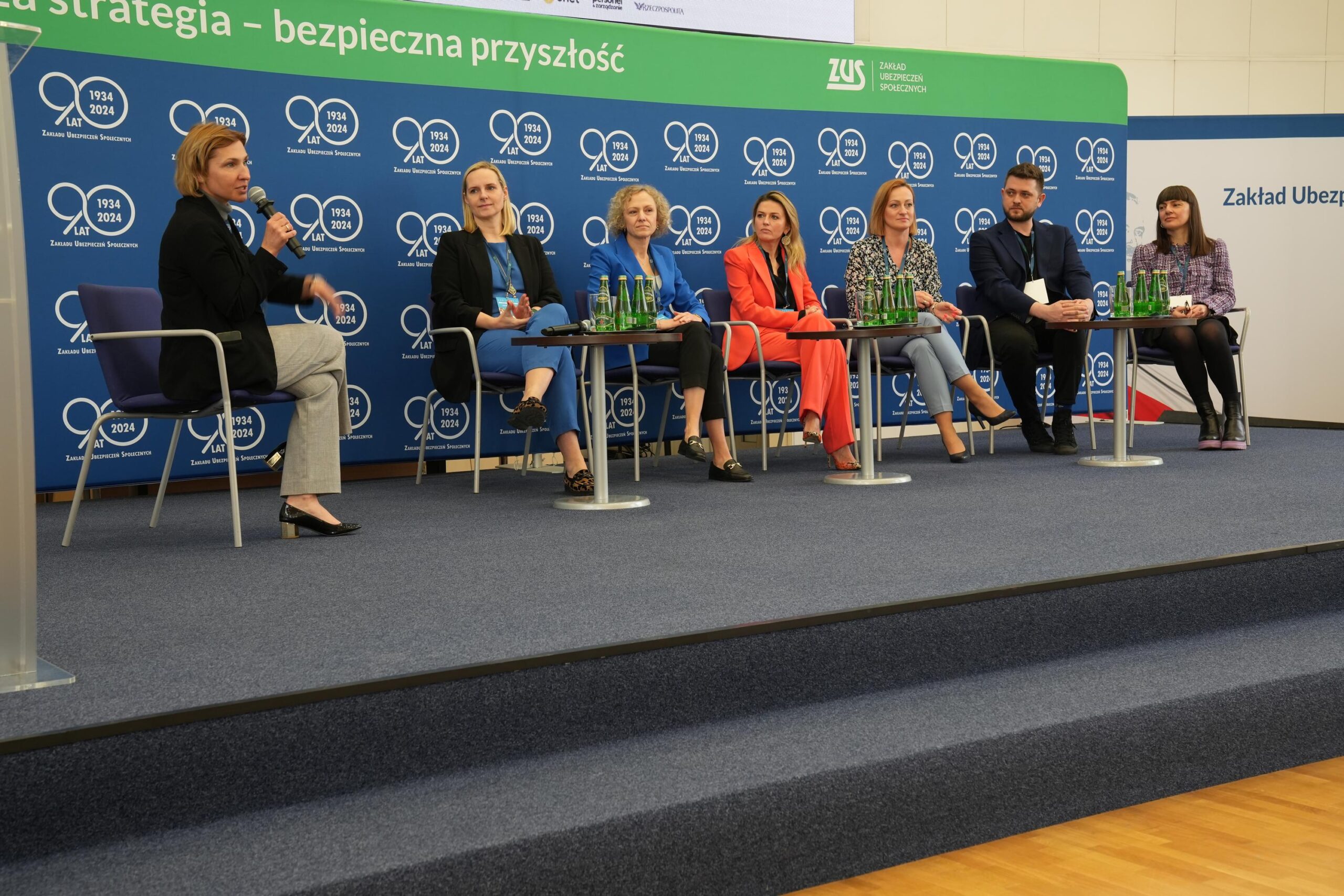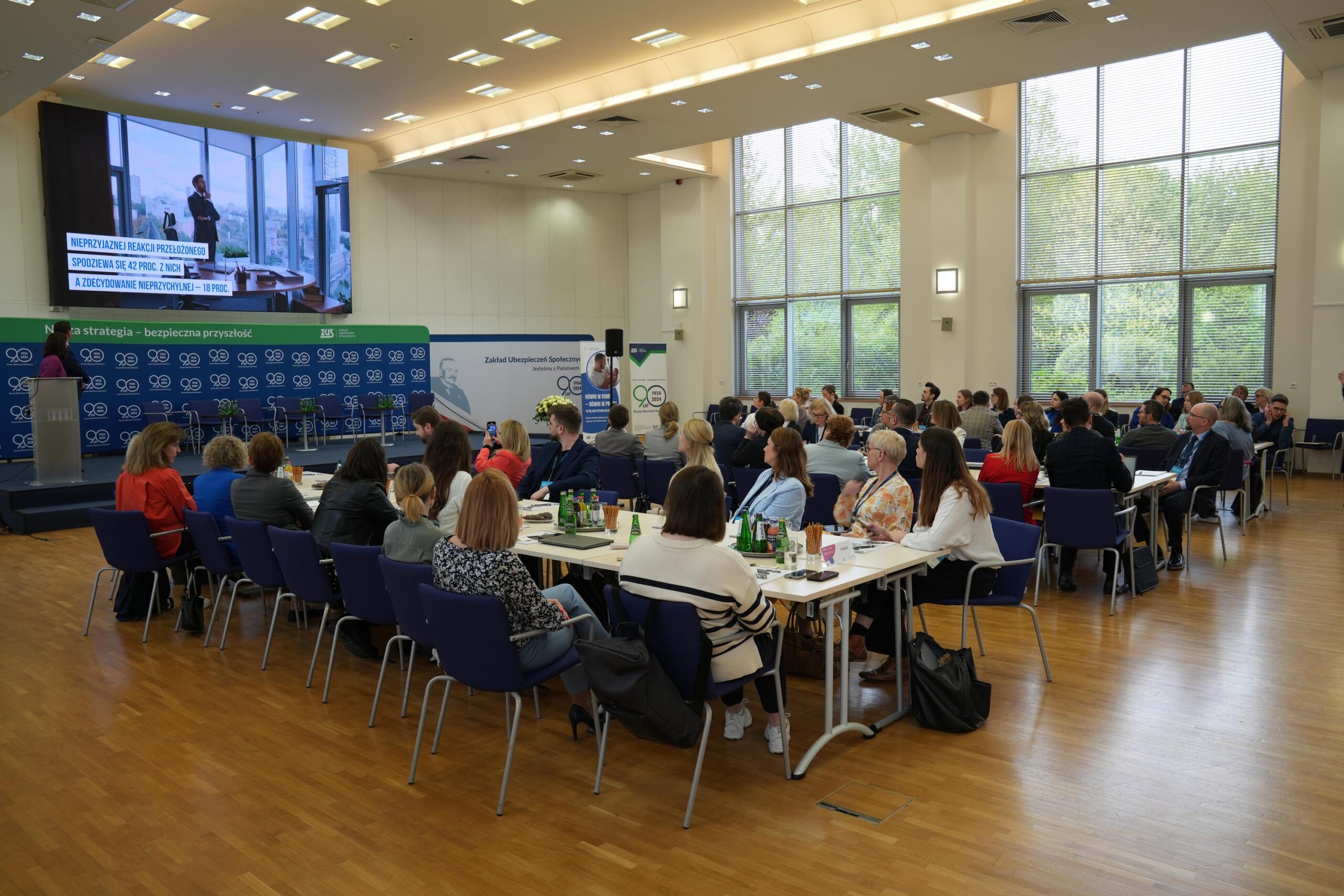May 21, 2025, Warsaw
Equal at Home - Equal at Work
How to effectively support parents in balancing family and work life?
Who is the conference for?
The conference is aimed at employers, labor market experts, representatives of public administration, social organizations, researchers, and everyone interested in building a more equal labor market and society.
Conference starts in:
The strategic partners of the conference are The Social Insurance Institution ZUS and COFACE Families Europe, a network of over 50 member organizations from 23 European countries that promotes family well-being, health, and safety in a changing society.
Why should you participate?
Learn how EU regulations support gender equality and workplace inclusivity
Discover best employer practices for supporting parents
Engage in discussions on challenges and the future of the labor market
Get inspired by examples of work-life balance initiatives
Build valuable connections and exchange experiences with experts from Poland and Europe
The Idea Behind the ``Equal at Home – Equal at Work`` Campaign
This conference is part of the annual „Equal at Home – Equal at Work” campaign organised by Share the Care Foundation, which aims to promote parental and workplace equality as two closely interconnected areas. The event takes place on the anniversary of the Work-Life Balance Directive’s implementation in Poland.
The main goal of this regulation was to increase women’s workforce participation by encouraging greater involvement of fathers in childcare. Parental responsibilities remain one of the main causes of labor market inequality, as Nobel Prize-winning economist Claudia Goldin has demonstrated. Her research shows that most gender pay gaps among professionals emerge when they become parents. Moreover, both sides lose out: men sacrifice time with their families, women often have to compromise their careers.
The Benefits of Shared Parental LeaveThe Benefits of Shared Parental Leave:
👩💼 Women have greater career development opportunities and an easier return to work, as childcare responsibilities are not solely on their shoulders. .
👨👦 Men can actively engage in family life since they are no longer solely responsible for financial support—a factor that is crucial for younger generations.
👶 Children benefit from strong bonds with both parents, a key aspect of child well-being in Scandinavian parental leave models.
🏢 Employers gain access to a wider and more diverse talent pool, which is essential in an evolving labor market.
Greater female workforce participation directly contributes to GDP growth. According to McKinsey & Company, if women fully realized their professional potential, Poland’s GDP could increase by 300 billion PLN annually.
By 2030, the Polish economy could grow by 9% if the potential of women in the labor market was better utilized—through higher employment rates and greater representation in high-productivity sectors such as industry, technology, and communication.
Register now for the conference
Agenda
Registrations and coffee
Welcome
- Magdalena Sobkowiak-Czarnecka, Undersecretary of State, European Union Affairs Division, The Chancellery of the Prime Minister
- Karolina Andrian, President of Share The Care Foundation
- Antonia Torrens, President of COFACE
- Mariusz Jedynak, Board Member, ZUS
Conference moderators:
Attila Böhm, Senior Policy and Advocacy officer, COFACE
Sylwia Ziemacka, Board Member of the Share the Care Foundation
Keynote Speech: Why We Should Care? The Future of Family Supportive Workplaces
An ageing workforce, declining birth rates, and increasing caregiving responsibilities are reshaping our societies. This keynote will explore the links between gender equality measures and family-supportive workplace policies, as a benefit not just for employees and employers, but society at large.
Presentation: Values and Policies – What the EU Agenda Means for Employers, Policymakers, and Families
An overview of key European policies affecting work-life balance and support systems, including insights into the EU Work-Life Balance Directive and other legislative frameworks that can help create family-friendly workplaces. Focus on impact of those directives on workplace but also employees/society.
Panel discussion. Building Family-Supportive Workplaces: Translating Goals and Values into Action and Benefits to all
Discussants:
Samantha Howe, European Public Service Unions
Kinga Jóó, European Economic and Social Committee
Jon Rogstad, Oslo Metropolitan University, Norway
Elisabeth Wenzl, Familie & Beruf Management GmbH, Austria
Magdalena Jarzynska, HR lead, Mattel
This panel will discuss the importance of cross-sector collaboration in fostering truly inclusive, family-supportive workplaces. Speakers will discuss the impact of recent regulations, examining both progress and areas for improvement. A key focus will be on the need to adapt policies to the realities of modern family life and the evolving workplace. This session aims to inspire actionable insights on how employers and policymakers can build workplaces that not only meet regulatory standards but also adapt to the changing dynamics of family and work.
Presentation: Case Study: Mums and Dads in Poland – Are the Regulations Effective?
- Aleksandra Gajewska, Secretary of State, Ministry of Family, Labour and Social Policy
- Karolina Andrian, Board Member, Share the Care
- Mariusz Jedynak, Board Member, ZUS
- Marcin Stanecki, Chief Labor Inspector, National Labor Inspectorate
Networking lunch
Panel Discussion. Beyond Compliance: How Leading Workplaces Pioneer Family-Supportive Practices
- Joanna Majda, Employee Development and Engagement Manager, Lidl
-
Karolina Gębura-Nowak, Director of People and Culture, Member of the Management Board, PMI
-
Anna Podlewska,Director of Strategic HR Initiatives at Credit Agricole Bank Polska
-
Agnieszka Krawczyk, Poland, Ukraine & CEE Commercial HR BP, Haleon
-
Malwina Wąsowska-Domirska, Chapter Lead Feature Engineer III, ING Hubs Poland
-
Małgorzata Petru, Diversity and Inclusion Manager, BNP Paribas Bank Poland
Introduction to the breakout sessions
Do we need EU regulations?
Discussion leaders:
- Sylwia Ziemacka, Board Member, Share The Care, Poland
- Annina Lubbock, Social Scientist and Gender Specialist, CSB onlus, Italy
- Ewa Rumińska-Zimny, Vice President Women Congress Association
- Katarzyna Gaweł, Head of DEI, Ringier Axel Springer Polska,
- Robert Lisiecki, Director of the Labor Department at the Lewiatan Confederation
Centering Families in Social Policy Amid Declining Fertility Rates
- Jérôme Gourod, Board member, UNAF France
- Andreas Edel, Director, Population Europe
- Iga Magda, Vice President, IBS- Institute of Structural Research
- Andrzej Kubisiak, Deputy Director, Polish Economic Institute
- Tomasz Pactwa, Director, Ministry of Family, Labour and Social Policy
Attracting Mothers Back to the Workforce: Policies and Perceptions that Drive Success
- Lutgard Vrints, Policy and research advisor, Gezinsbond, Belgium
- Marie Toulemonde, Gender specialist, UNFPA EECA
- Justyna Łuczak-Rzepkowska, Business Manager, Femmeritum
- Marika Hartwich, VP, Central Europe People Business Partner, Mastercard
- Aldona Kozłowska, Diversity and Inclusion Manager, Senior HR Business Partner, Orange
Crafting Inclusive Family Campaigns: Engaging Diverse Audiences in the Workplace and Public Sphere
- Marina Wetzer-Karlsson, Programme Director, Vaestoliitto, Finland
- Genny Sangiovanni, Secretary, NELFA
- Renata Szredzińska, President of the Board at Empowering Children Foundation
- Radosław Wierzbiński, PhD in Social Sciences, Dadvertising Experet, Head of Comms, Allegro
- Anna Bachulska-Kossek, Marketing Manager (OTC), Haleon
- Representative of the National Labour Inspectorate, Poland
Does the Partnership Family Model Support Fertility?
- Kathleen Emmery, Odisee Centre for Family Studies
- Sven Iversen, Association of Germany Family organisations
- Kacper Nosarzewski, Partner 4CF,
- phd Anna Kurowska, Associate Professor at the University of Warsaw,
- phd Agnieszka Chłoń-Domińczak, Vice Rector, Warsaw School of Economics,
- Rafał Zadykowicz MD, Warsaw Medical University
Engaging Men in Parental Equality: Breaking Down Barriers and Building Support
- Anna Tarrant, University of Lincoln
- Miguel de la Corte, European Equality Law Network
- Nikki van der Gaag, Representative of Men Engage Europe
- phd Kamil Janowicz, Psychologist, SWPS University
- Karolina Andrian, Board Member, Share the Care Foundation
- Błażej Kobus, Head of Social Media Team, BNP Paribas Bank Poland
- Rafał Błażejewski, HR Team Lead, Nordea
- Kamil Wojtowicz, Project Manager, ING Hubs Poland
- Joanna Szczesiak HR Project Manager, Credit Agricole Bank Polska S.A.
Key takeaways from each sessions
All six groups feed back to the plenary followed by exchanges.
Conclusions and next steps
Networking
more information:
Aleksandra Harper-Wałęsa
Head of Partnership
Fundacja SHARE THE CARE
phone: 501 550 258
aleksandra.harper-walesa@sharethecare.pl
Book your seat at the conference now!
SPEAKERS
Equal at home - Equal at work 2024
April 26, 2024, marked one year since the implementation of the Work-Life Balance Directive in Poland.
To mark this occasion, the Share the Care Foundation and the Social Insurance Institution (ZUS) organized the conference "Equal at Home – Equal at Work". The event brought together labor market and demographic experts, employers, NGOs, researchers, and institutions involved in social policy to analyze the situation of mothers and fathers in the workforce and their level of engagement in childcare.
The conference also featured the premiere of the joint report "Dad on Parental Leave: What the Numbers Say About Fatherhood in Poland". This event was part of the broader campaign "Equal at Home – Equal at Work. It Benefits Everyone," aimed at raising awareness of parental rights and the benefits of sharing parental leave - for parents, employers, and society as a whole.
Sign up for the conference!
Enter your email address, and you will receive the details in your inbox.
Please check your spam and other folders.
Dziękujemy!
Otrzymasz szczegóły konferencji na swoją skrzynkę mailową
Thank you!
You will receive the conference details in your email inbox.
Honorary Patronage
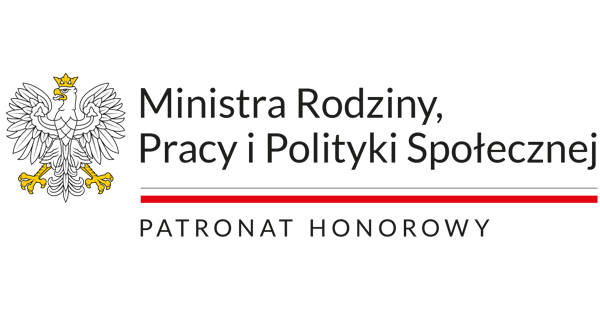

Strategic Partners

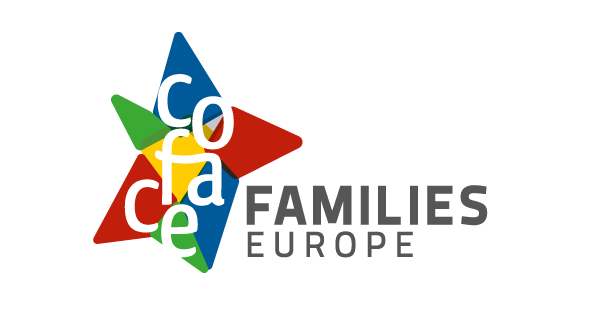
Location
How to get to the conference?
Plan Your Route:
Enter your location address to get directions to the event venue.
Address
Szamocka 3/5, 01-748 Warsaw
Public Transportation
Buses: 180, 221, 122, 186


